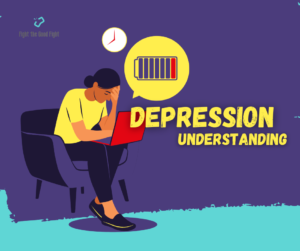Introduction
In today’s fast-paced society, self-gratification has become a prevalent aspect of our lives. From social media notifications to online shopping, instant satisfaction is just a click away. However, beneath the surface lies a hidden danger that many are unaware of – the impact of self-gratification on dopamine. This article delves into the potentially dangerous effects that excessive self-gratification can have on the brain’s reward system and overall well-being.
Understanding Dopamine and the Brain’s Reward System
Dopamine, often referred to as the “feel-good” neurotransmitter, plays a crucial role in the brain’s reward system. It is released when we experience pleasure, encouraging us to repeat the behavior that triggered its release. Self-gratification, particularly when it is instant and readily available, can create a cycle of constant dopamine release. This can lead to the desensitization of dopamine receptors, requiring higher levels of stimulation to achieve the same level of satisfaction.
The Vicious Cycle of Excessive Self-Gratification
In our technologically driven world, self-gratification is just a few clicks or taps away. Whether it’s indulging in excessive screen time, constantly seeking social media validation, or engaging in addictive behaviors such as online shopping or gambling, these activities trigger dopamine release in the brain. Over time, the brain adapts to this constant stimulation, leading to a diminished response to everyday pleasures. As a result, individuals may find it increasingly difficult to derive satisfaction from ordinary activities, leading to a cycle of seeking greater and more intense stimulation.
Negative Impact on Mental Health
Excessive self-gratification can have detrimental effects on mental health. As dopamine receptors become desensitized, individuals may experience symptoms of addiction, depression, and anxiety. This can manifest as a constant need for validation, social isolation, decreased motivation, and difficulty focusing on important tasks. The constant pursuit of instant gratification can also erode patience and impulse control, leading to impulsive decision-making and poor judgment.
Breaking the Cycle
Recognizing and addressing the potentially dangerous effects of self-gratification is essential for maintaining a healthy balance. Implementing strategies such as setting limits on screen time, practicing mindfulness, and engaging in meaningful offline activities can help break the cycle of excessive self-gratification. Additionally, seeking support from friends, family, or professionals can provide the necessary guidance and assistance in overcoming addictive behaviors and restoring a healthier relationship with dopamine release.
Conclusion
While self-gratification has become deeply ingrained in modern society, it is crucial to understand the potential dangers it poses to our brain’s reward system. Excessive self-gratification can lead to a desensitized dopamine response, negatively impacting mental health and overall well-being. By recognizing the risks and taking proactive steps to break the cycle, individuals can restore balance, regain control, and cultivate healthier habits for long-term satisfaction and fulfillment.



